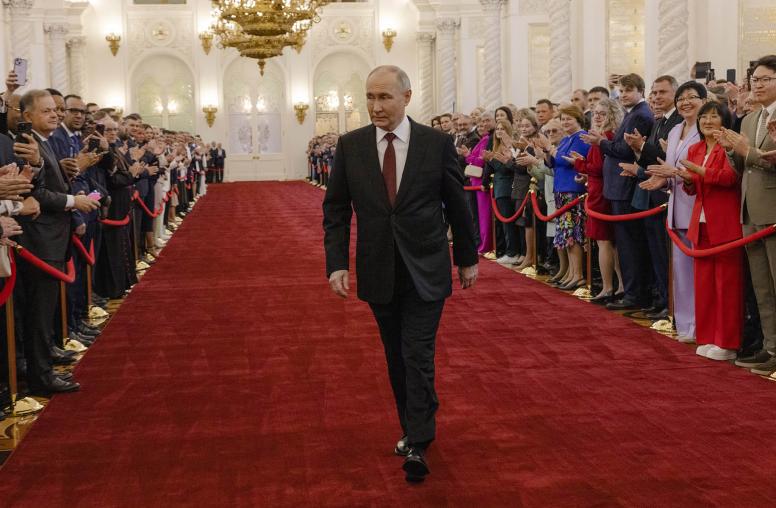A Screening of ‘Freedom on Fire: Ukraine’s Fight for Freedom’
Emmy- and Oscar-nominated director Evgeny Afineevsky’s new film, "Freedom on Fire: Ukraine’s Fight for Freedom,” explores the courage and cost of Ukrainians’ resistance to Russia’s unprovoked aggression. Following the lives of everyday Ukrainians, the film seeks to reconcile the hopeful aftermath of the 2014 Maidan Revolution with the difficult realities of the country’s eight-year conflict with Russia — including Russia’s devastating full-scale invasion in 2022. Throughout, Ukrainian civilians, soldiers, doctors, elderly, journalists, religious leaders and international leaders continuously stand their ground against Russian brutality. The result is a moving portrait of Ukraine’s unwavering bravery, compassion, resilience, and unity.
There will be no live webcast for this event.
On December 7, USIP hosted a public screening and discussion of “Freedom on Fire: Ukraine’s Fight for Freedom” with director Evgeny Afineevsky. The conversation exposed the war’s devastating impact on Ukraine and explore Ukrainians’ hopes for the future as they fend off Russia’s invasion.
Speakers
Lise Grande, welcoming remarks
President and CEO, U.S. Institute of Peace
Senator Amy Klobuchar (D-MN), opening remarks
U.S. Senator from Minnesota
Ambassador Marie “Masha” Yovanovitch, moderator
Senior Advisor, Russia and Europe Center, U.S. Institute of Peace
Evgeny Afineevsky
Director, “Freedom on Fire, Ukraine’s Fight for Freedom”



